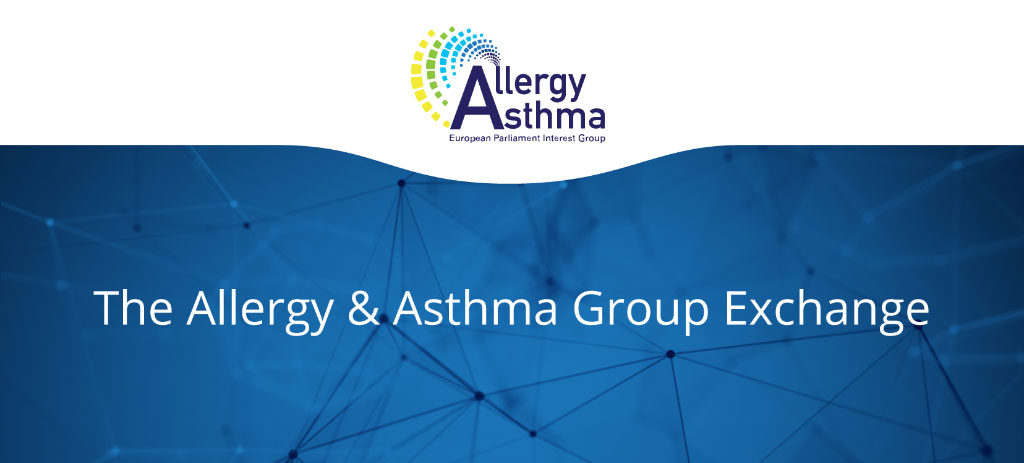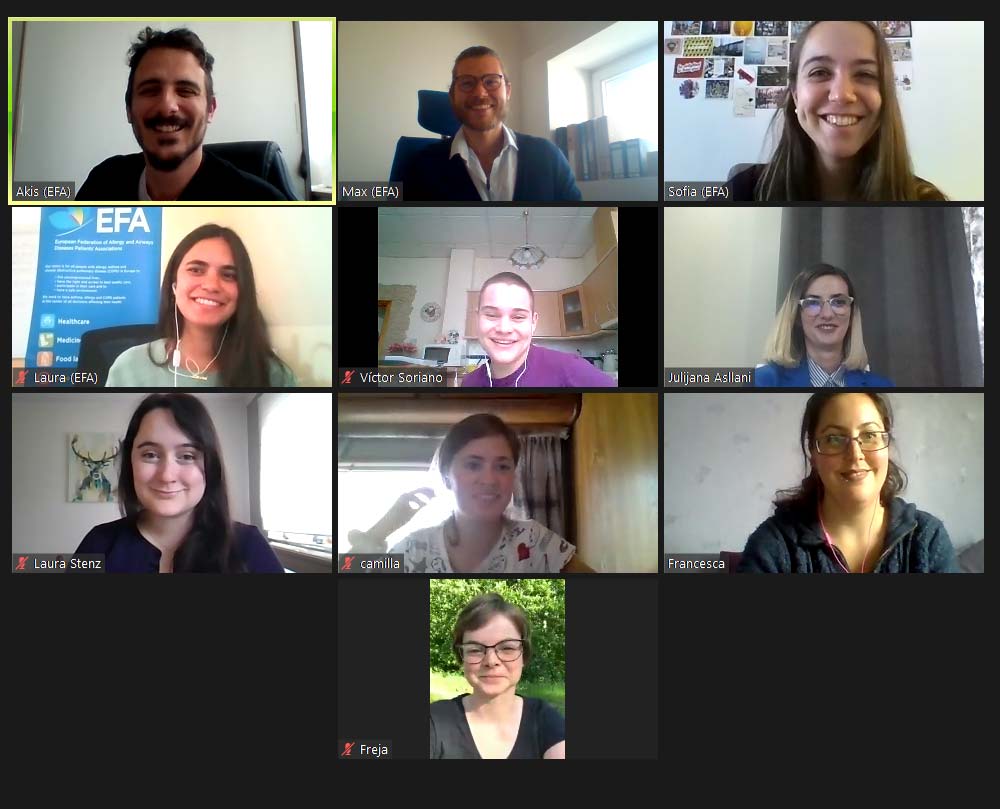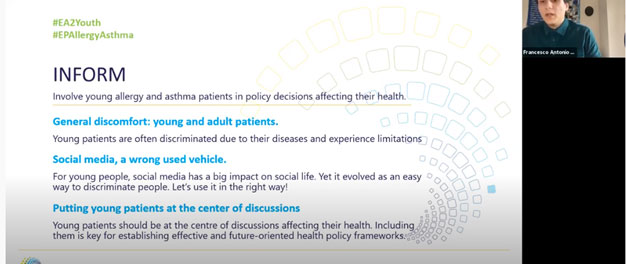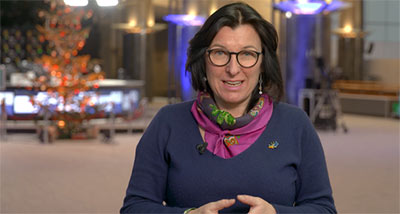In 2020, EFA, together with the European Academy of Allergy and Clinical Immunology (EAACI), continued to work closely with MEPs to promote forward-looking policies on information, prevention, and care. We collaborated to raise awareness about the latest scientific evidence and best practices through the European Parliament Interest Group on Allergy & Asthma.
Early in the year, EFA and EAACI adopted a revised Interest Group strategy 2020-2024. The strategy is based on a vision to engage EU policymakers and stakeholders to trigger evidence-based policy change on allergy and asthma. It revolves around four main strategic objectives: 1. Promote allergy and asthma health in Europe, 2. Build a network of expert knowledge on allergy and asthma, 3. Drive allergy and asthma policy and practice, and 4. Champion the future of allergy and asthma in Europe. The strategy highlights the crucial role that patient organisations play as organisers, collaborators, and leaders in a time of rapid and comprehensive transformation.
Moreover, 2020 marked the completion of the leadership reshuffle that began in 2019. Under the guidance of the Chair MEP Sirpa Pietikäinen (Finland, EPP), the membership of the Interest Group continued to grow with three new members. Two of them, MEP Tilly Metz (Luxembourg, Greens) and MEP Juozas Olekas (Lithuania, S&D), were also appointed as Vice-Chairs, raising the number of Vice-Chairs to four. We are pleased to see the leadership reflect different political groups to help widen the cross-party character of the group. Similarly, we are pleased by the growing commitment of members in response to increasing concerns for respiratory health in the face of COVID-19, helping establish the Interest Group as an enduring fixture at the European level.
In 2020, the Interest Group launched three joint statements, reflecting the position of the allergy and asthma community on key issues:
- A statement on the impact of COVID-19 pandemic on chronic disease prevention and care, linked to air pollution, and the need to reinforce investment in research and innovation.
- A statement on the EU Green Deal, calling the European Commission to be ambitious in adopting policies that would affect allergy and asthma health.
- A statement on the Beating Cancer Plan, highlighting the shared risk factors between cancer and allergy and asthma e.g., air pollution, chemicals, and tobacco consumption.

The Interest Group Secretariat continued publishing its quarterly newsletter addressed to MEPs, drawing attention to policies and activities concerning allergy and asthma.
Next Generation Europe: European Allergy and Asthma Youth Parliament

In connection with the Interest Group on Allergy & Asthma, EFA launched the Allergy & Asthma Youth Parliament to establish a platform for the next generation of health leaders. Their role is to inform European policymakers on how their work can support young people living with asthma and allergies.
The Youth Parliament consists of 13 young allergy and asthma patients and healthcare workers between 16-26 years of age, representing 10 countries from across Europe. Despite the restrictions around COVID-19, they met regularly online to discuss concerns and share experiences surrounding healthcare for young patients living with allergy and asthma.

Together, the members created a report of EU policy recommendations on how to promote information, prevention, and care for young people living with allergy & asthma in Europe. The recommendations offer guidelines on how to support young patients so they can comfortably attend school and work, socialise, and make use of opportunities such as travelling and living abroad.

The recommendations, ‘Growing Up with Allergy and Asthma - How EU policymakers can support young allergy and asthma patients to live better lives’, were launched at an Interest Group event hosted by MEP Sirpa Pietikäinen, MEP Tilly Metz and MEP Juozas Olekas in December, with over 100 participants.
For 2021, EFA plans to expand the Allergy & Asthma Youth Parliament, with the aim of defining the long-term priorities of young patients in close coordination with its members, and to expand the group's membership.